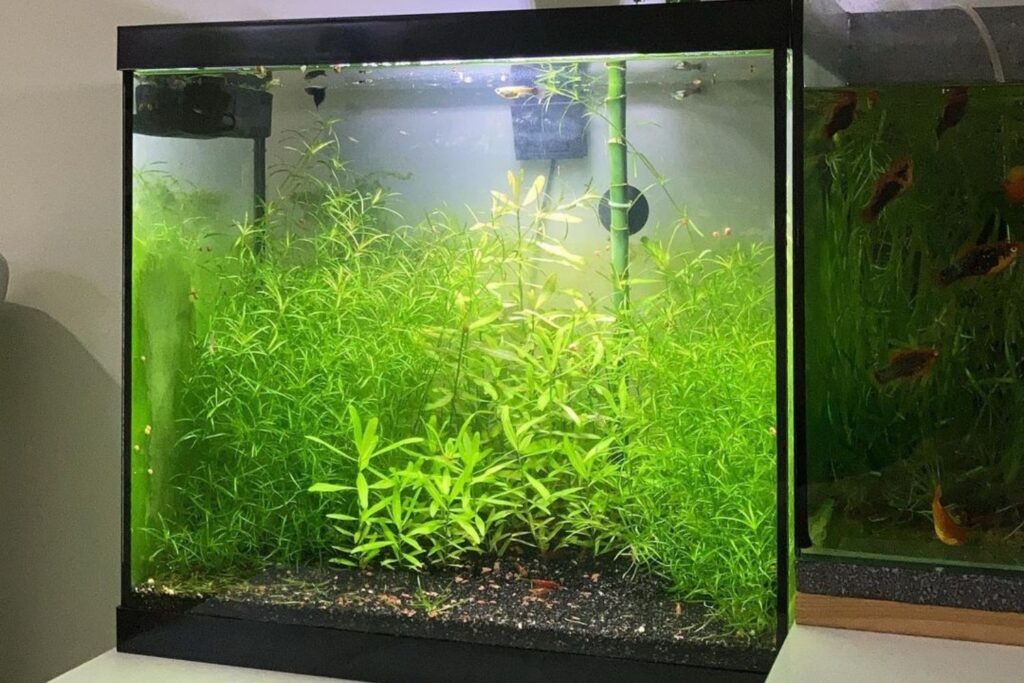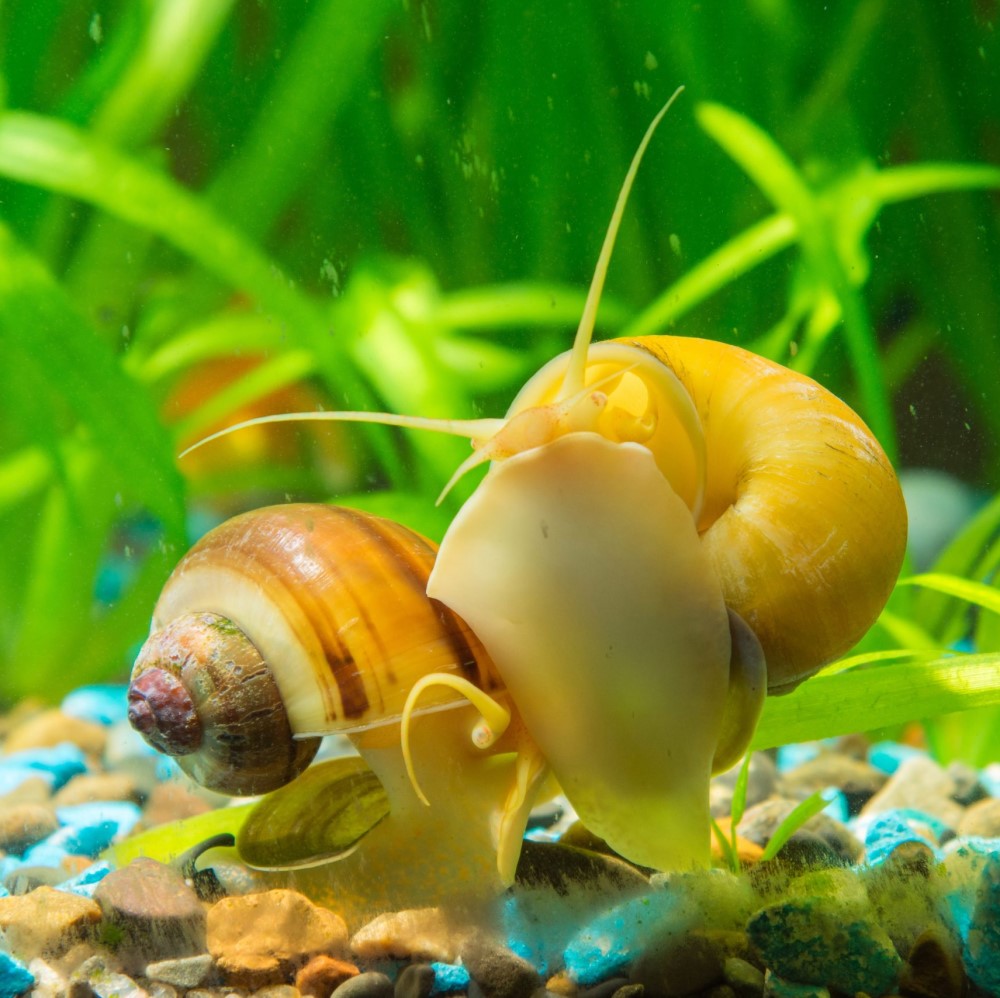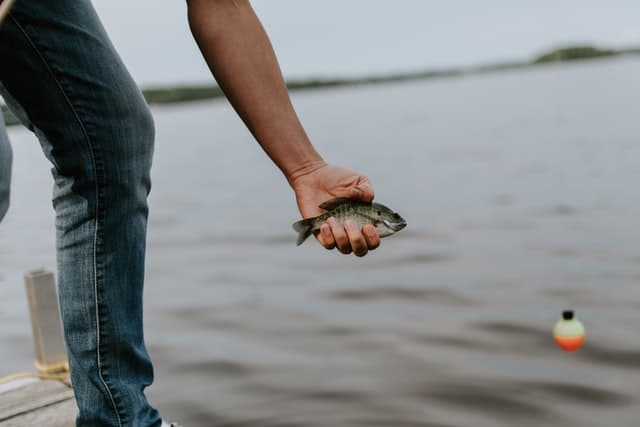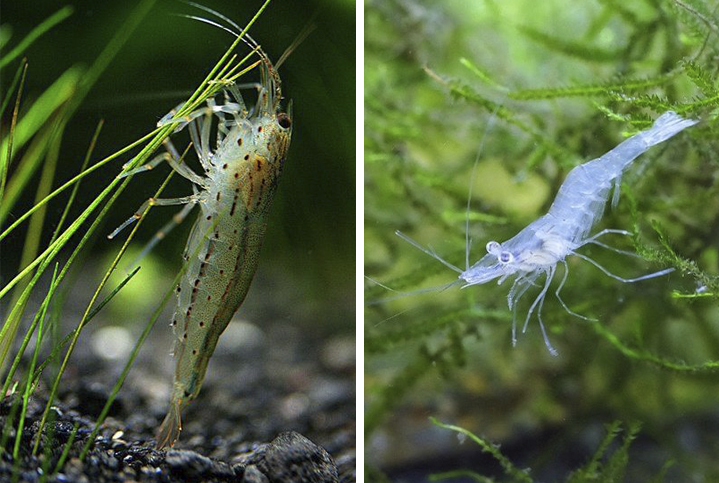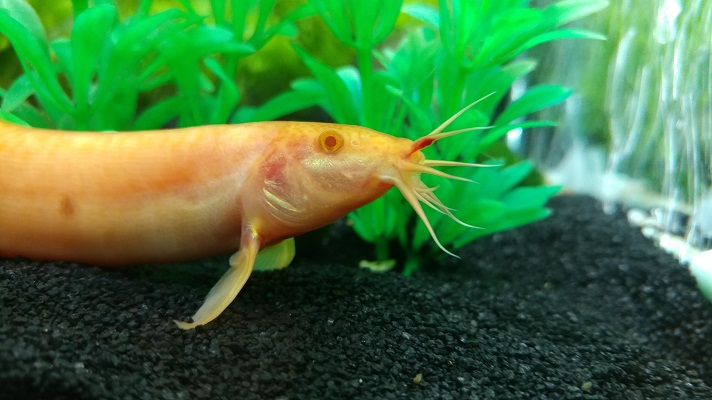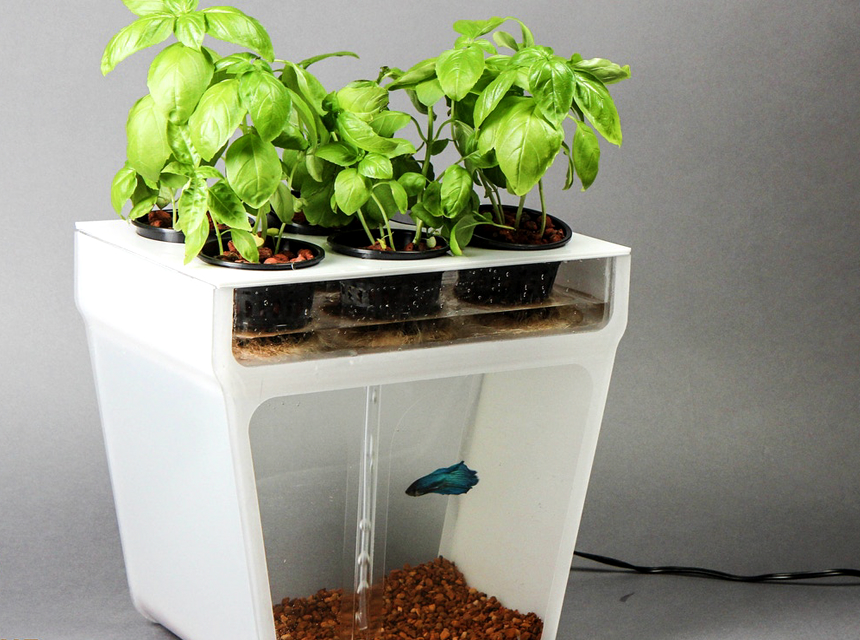

The Betta, also known as the fighter, is a mythical fish. It’s well known for its aggressiveness, especially when two males are in the same fish tank. Asides from this, there is a lot to know about this fighting fish. They’re types of fish that require special water conditions or they could float dead in hours. In general, large pet stores will not be able to provide you with very detailed information unless you happen to come across an aficionado seller.
This article will tell you what water is best for betta fish. We’ll let you know all about how this fish is cared for: its natural state, its biotope, the ideal aquarium, the recommended volume of water, the quality of the water, the water parameters, and more.
Below are tips on the water type and water quality required for a Betta fish.
The Betta fish is a freshwater fish. The fighter, in its natural environment, lives mainly in small rivers with low flow but also rice fields or areas of low oxygen and shallow water.
Although these habitats may seem shallow for a fish, the fighter still needs a good volume of water to be able to swim properly, but also many hiding places.
However, Betta fish can also live in a saltwater aquarium. Just don’t overdose the tank. But Bettas don’t generally need aquarium salt.
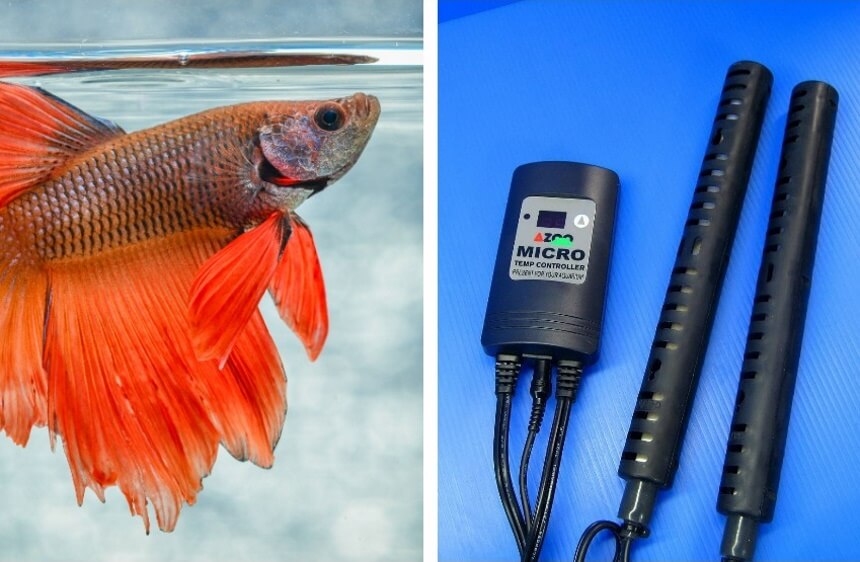
The use of an aquarium heater with an integrated thermostat is almost essential for this tropical fish unless your ambient temperature is constantly above 80 degrees Fahrenheit. The PULACO 25W is a heater with an integrated thermometer. The additional thermometer will allow you to check the temperature at a glance which is very practical.
The fighter is a fish sensitive to temperature changes. So, carry out the water changes slowly without rushing things. A sudden temperature change can put your fish in a great state of stress and affect its health.
Note: The water temperature should never fall below 64° F and should not exceed 82°F. Too cold water can cause diseases, even the death of the fish. You should also know that failure to respect the recommended temperature considerably reduces the life of your fighter.
The fighters need water with a pH between 6.5 and 7.5. The Ammonia rate must be as low as possible (0 is recommended), as must the Nitrites (NO2). A nitrates level of less than 40 ppm is desirable. These analyses can be carried out using strip tests or drop tests.
Also, remember to test the pH of your tap water. The pH often exceeds 7.5, which can be a problem. In this case, the use of a pH reducer before the introduction of water is essential to solving this problem.
Betta fish are happiest when they have clean water. So, here are all your questions answered regarding water preparation.
Contrary to popular belief, fighting fish do not survive in tiny puddles or muddy water. Their natural environments are rice paddies and shallow, slow-flowing rivers. In most cases, a larger aquarium is always better.
While many people ask: can betta fish live in tap water, you should know that tap water is the most recommended and cheapest option (for betta fish tanks) because most tap water is treated with chemicals. However, it may be necessary to condition the water before adding it to the tank. If you put your betta in untreated tap water, the fish may die Trusted Source How to prepare water & adjust the pH for a betta fish - Bettaboxx www.bettaboxx.com . Meanwhile, distilled water is not recommended.
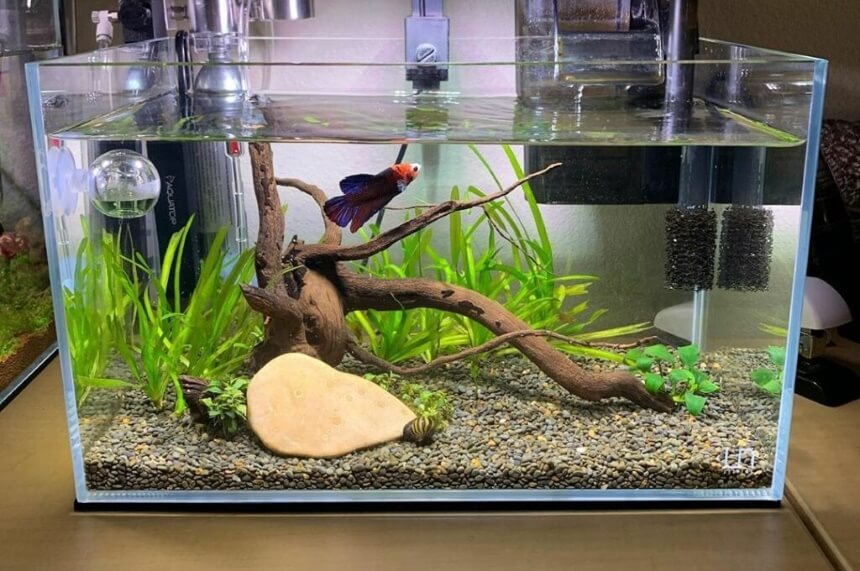
The choice of an aquarium of twenty liters or more is ideal for keeping your fighter in good health. The stability of water parameters and the maintenance of the aquarium will be more effortless for you to manage.
In addition, the variations in water temperature will be more gradual, so there is no risk. A large enough aquarium can also offer your fighter more hiding places, which is perfect for this type of fish.
Note: It is also ideal to use an aquarium closed by a lid or a gallery because the fighters tend to jump out of the water. A space of 2 or 3 cm between the surface of the water and the lid is the minimum because Betta are surface fish that need to suck in air using a unique organ (labyrinth organ). This allows them to live in low oxygen waters. The aquarium will therefore not need an aeration system with an air pump.
Conditioning products from popular stores can be harmful to Betta fish. Although water conditioning chemicals are less expensive at one-price stores, buy them at a big box or specialty store (in an aquarium) where they are of better quality (and especially suitable for treating aquarium water).
Use a small amount of water conditioner according to the manufacturer’s instructions (many products recommend a dose of one tablespoon per 10 gallons (37 liters) of water). A small betta tank, then, may require only a few drops.
The Aqueon Betta Bowl Plus Water Conditioner is one of the best water conditioners for Betta fish. It detoxifies heavy metals, ammonia, and other elements and has a convenient dosing cap.
The best Betta fish water conditioner contains no chemicals. Since you are keeping live fish and aquatic plants, their safety and health should be the top priority. Stay away from products containing compounds as these can cause harm or lead to the death of fish.
Do your research on the product you are considering buying. Examine the information in the product description and check if this is reliable and powerful to use for your betta tank.
First, you have to get an aquarium water test kit. We recommend the API Water Test Kit as it can check for pH, nitrates, nitrites, ammonia, and more. Ensure that the temperature is between 75 and 80 degrees Fahrenheit. Nitrites must be 0. There is no debate here; nitrites always have to be at 0, if not, your aquarium will not be cycled, and your betta’s life will be at high risk.
You have to be alert when nitrates are going higher than 25. Things will become more dangerous as we get closer to 50. More than 50 will already be very dangerous. So, you must make a partial water change to lower those nitrate levels.
General hardness should be between 4 and 14; 6 is ideal. Ph should be between 6.5 and 7.5; 7 is ideal. Finally, Kh should be between 3 and 6.
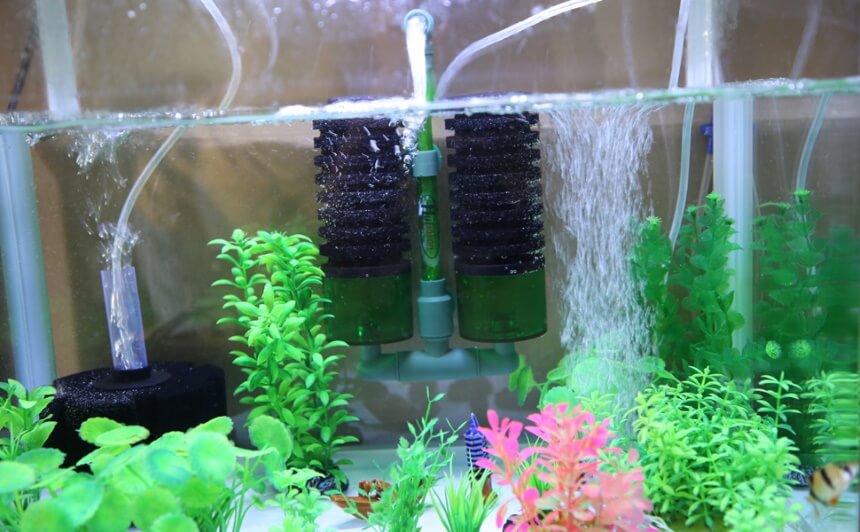
To stay in the spirit of the ideal aquarium for your fighter, we strongly recommend it, especially when the volume of water is greater than 10 liters. In addition, an aquarium without a filter will require more maintenance and work.
Indeed, an aquarium filter brings many advantages by reducing the organic load present in the water and by storing some of the purifying bacteria. Most filtrations on the market also use activated carbon as a chemical filtration media, which has many advantages. However, the best-filters for betta tank are usually with sponge filters. The filter media will need to be regularly replaced. As for these, you can also easily find the best aquarium filter media online.
Note: the fighter is not a very active swimmer. It is therefore essential to provide a filtration system with adjustable flow, if possible, and equipped with a low flow or very well distributed to not create strong currents in the water. Too much flow can damage and tear the sails of your Betta and then create stress which can lead to the death of the fish.
Don’t drop the fish straight from the aquarium bag into the newly prepared tank. The water should be treated and the chemicals must have gone through the nitrogen cycle Trusted Source Common Mistakes When Starting a New Aquarium Avoid common pitfalls that new aquarium owners make when setting up a tank including overfeeding, water filtration, and more. www.thesprucepets.com ; that is, the nitrites and the ammonia must have risen and dropped before the fish are introduced. This usually takes three to six weeks.
Also, you should acclimatize the fish to the aquarium water. Put the fish in the aquarium bag and let them rest for 10 minutes. Then pour about a cup of the aquarium water on them while in the bag and wait for another 10 minutes. Repeat this until the bag is filled with water, after which you can add the fish into the aquarium.
If you’re adding fish to an existing aquarium, you must quarantine the new fish Trusted Source How to Safely Add Fish to an Aquarium Safely add new fish to your aquarium by acclimating them to the temperature and pH of the tank water. www.thesprucepets.com in a separate tank before mixing them.
Prefer to feed them with floating Betta food like the Aqueon Pro Betta Pellet. It’s nutritionally balanced for Bettas, and the leftovers can be picked easily without dirtying the water.
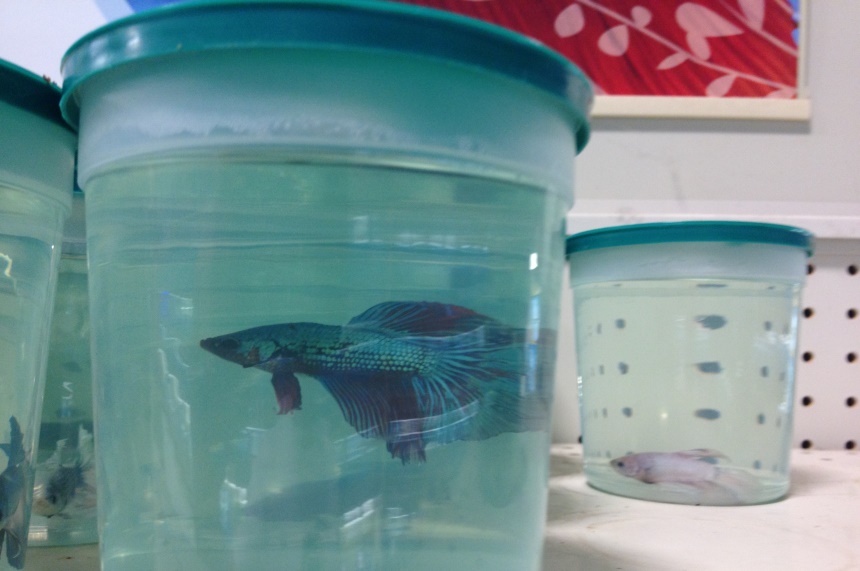
Fill a container one day in advance with the water intended to be poured into the tank. This is so that it takes the same temperature as the ambient air. Add a product that conditions the chemical composition of the water if the one you use comes from the tap.
Remove from the tank the amount of water you wish to replace. Pour the fresh water into the tank and after draining some of the used water from the container, add fresh water to it so that the fish begins to get accustomed to its new chemical environment.
Wait a few hours before putting your betta fish back in its tank. When setting up your tank for a fighter or a water change, prepare tap water using a water conditioner. It will convert pipe water into good water for your aquarium in seconds. The conditioner mainly removes Chlorine from the water and heavy metals. Most of today’s water conditioners reduce stress and promote fin health simultaneously.
Bettas need special water conditions because the water condition can be the difference between dead fish and healthy fish. For example, fighters are sensitive to temperature changes. A change of 2-3 degrees can affect their immune system. Placing your fighting fish in a cold environment will kill it.
Also, distilled water is not advisable for Bettas. It does not contain any nutrients or minerals. In nature, fighters do not live in distilled water, and such a drastic change can affect their health.
Also, adding a conditioner will help clean the water of chlorine and chlorites that could kill your fish.
You also have to ensure the clean water is at the same temperature as the dirty one to avoid thermal shock, which could be fatal to your fighter. Use a thermometer to place in the aquarium to monitor the temperature.
The fighter fish is a member of the anabantoid family, of which the gouramis are also a part Trusted Source Blue Gourami And Betta Fish: More Similar Than You Might Think Some hobbyists successfully keep gouramis with betta fish, even to the point of hybridization, but the pairing is almost guaranteed to fail. bettasource.com . They have a secondary respiration system that allows them to breathe air from the surface, but they still need a filtering system in their aquarium. We recommend canister models, and you can easily get the best canister filters in our review.
Female fighters usually are smaller than males. Their fins are not as long and elegant as those of males. They can, of course, be just as beautiful as the males and fiery! Don’t let them live together, though, because the female could attack the male’s fins and tear them.
When you see bubbles gathering on the surface, it means they are ready to reproduce, not that they are happy.
If a female pleases a male, he will spread his gills, wiggle, and spread his fins. If a male pleases a female, the female will wiggle back and forth.
In pet stores, you will usually find fighters belonging to the Betta splendens species. Many other species are much rarer, and sometimes they may not look like the fighting fish you know.
Fighting fish are highly territorial animals. The males could fight to the death in a jar. They could also attack females in a jar that is too narrow. Fighting fish are highly territorial animals. The males could fight to the death in a jar. They could also attack females in a jar that is too narrow.
Experts generally advise against keeping these fish in jars. This will stress them out, and they could get sick. It is usually advisable to put them in aquariums of at least 40 liters.
If you want artificial decorations, be careful of plastic plants that can cut their fins. Rough surfaces can also hurt them. Instead, try putting in natural plants or silk plants.
You can find out more about caring for Betta fish from the video guide below.
Fighting fish are happiest when they have clean water, so you should make sure to change a fifth to a tenth of the water every week for a thirty-liter tank and twice a week for those which contain twenty liters of water.
Changing one-tenth of the water means that you should remove 10% of the water and replace it with the same amount of fresh water.
We’ve told you what water is best for Betta fish. Chlorine-free tap water can do the trick. In addition, you can also use spring water. However, fighters are sensitive to temperature changes. A change of 2-3 degrees can affect their immune system. If possible, invest in an aquarium heater and make use of it.
Do not use distilled water; it does not contain any nutrients or minerals. In nature, fighters do not live in distilled water, and such a drastic change can affect their health. Finally, please do not place your fighting fish in a cold environment: this will kill it.
